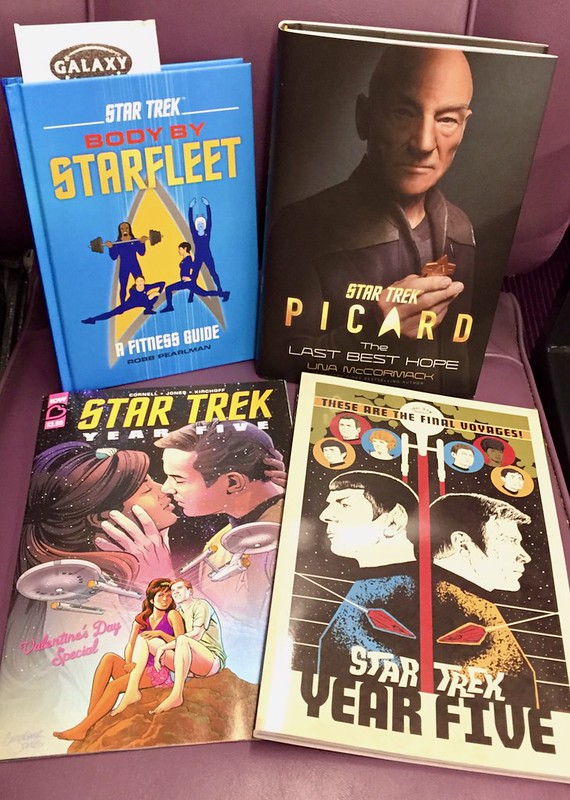I just finished Dayton Ward's Agents Of Influence (and really enjoyed it; I'm rarely sanguine when Treklit is set during TOS, but I thoroughly enjoyed many aspects of this novel), and I noticed something happening with the cover--at the bottom--and the spine--again, at the bottom, wrapping around to the back cover.
There is a "laminate" sheath that is peeling up from the bottom cover. I had not noticed this "plastic coating" until I started to feel it when I was holding the book and it was beginning to peel.
Is this happening to anyone else's copy? I was curious if anyone on the "inside", who might visit this site, knew if this was or was going to be a part of the Gallery line's construction of the trades. Or is this just a one-off for this publication?
Donnie
There is a "laminate" sheath that is peeling up from the bottom cover. I had not noticed this "plastic coating" until I started to feel it when I was holding the book and it was beginning to peel.
Is this happening to anyone else's copy? I was curious if anyone on the "inside", who might visit this site, knew if this was or was going to be a part of the Gallery line's construction of the trades. Or is this just a one-off for this publication?
Donnie



